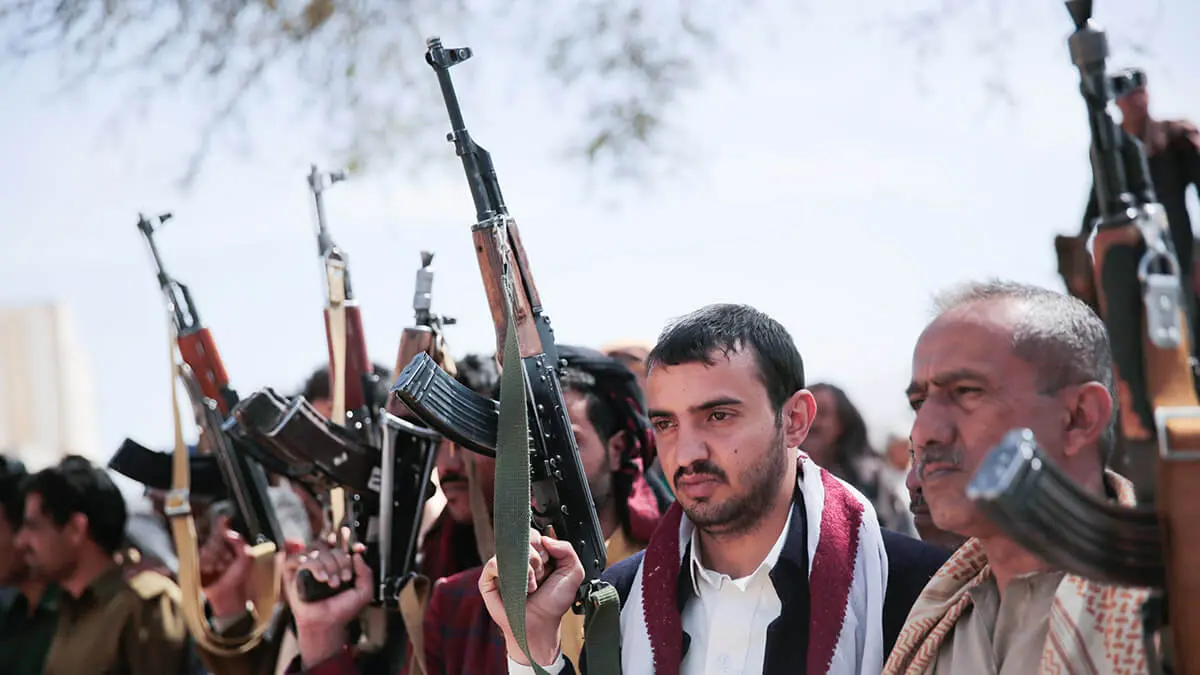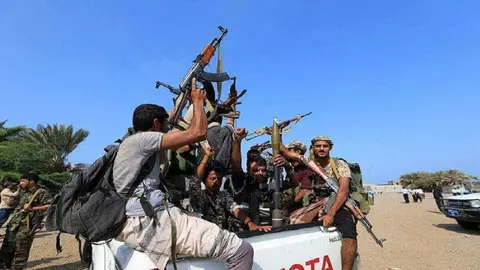The US and the UK attack the Houthis again, who promise to take revenge

The United States and the United Kingdom attacked Yemen's Houthi rebels again to dissuade them from continuing to hit ships in the Red Sea, to which the insurgents responded by promising revenge.
London and Washington said in a joint statement that they struck "eight Houthi targets in Yemen, in response to the Houthis' continued attacks on international and commercial traffic, as well as on warships transiting the Red Sea."
U.S. Forces, Allies Conduct Joint Strikes in Yemen
— U.S. Central Command (@CENTCOM) January 22, 2024
As part of ongoing international efforts to respond to increased Houthi destabilizing and illegal activities in the region, on Jan. 22 at approximately 11:59 p.m. (Sanaa / Yemen time), U.S. Central Command forces alongside UK… pic.twitter.com/BQwEKZqMAo
The strikes, around midnight on Monday (2100 GMT), "specifically targeted an underground storage center of the Houthis and sites related to air and missile surveillance capabilities," the joint statement added.
Since mid-November, the Houthis have attacked what they consider vessels linked to Israeli interests in the Red Sea, in solidarity with the Palestinians of Gaza.
His campaign has disrupted maritime traffic and prompted the United States and the United Kingdom to carry out retaliatory attacks. Since then, the Houthis have declared that the interests of these two powers are also legitimate targets.
"They will not go unpunished"
The rebels reported 18 attacks by the United States and the United Kingdom against their territory in the provinces of Sanaa, Hodeidah, Taez and Al-Baida, and promised in a message on the X network that such operations "will not go unpunished."
US and British forces carried out a first wave of attacks against the rebel group earlier this month.
"These precision strikes are aimed at disrupting and degrading the capabilities that the Houthis use to threaten global trade and the lives of innocent seafarers," the joint statement said.
"What we have done again is to send the clearest possible message that we will continue to reduce their [the rebels'] ability to carry out these attacks," British Foreign Secretary David Cameron said.
In a separate statement, the US Central Command (Centcom) said the targets included "missile and launcher systems, anti-aircraft systems, radars and underground weapons storage facilities."
Iran, the power that sponsors the Houthi rebels, who control a part of Yemen including the capital Sanaa, lashed out at the attacks by the United States and the United Kingdom.
According to his foreign Minister Hossein Amir-Abdollahian from New York, quoted by the official Iranian agency Irna, these operations are a "threat to peace and security in the region" and "intensify the scope of the war."
Two months of attacks
The Houthis, a movement backed by Iran and that supports the Palestinian Hamas in its conflict with Israel, had claimed responsibility on Monday for an attack on a US military vessel off the coast of Yemen, and said they were ready to continue their attacks.
The Houthi forces "carried out a military operation targeting the US military cargo ship Ocean Jazz in the Gulf of Aden," the movement's spokesman Yahya Saree said. This information was described as "false" by a Pentagon official.
In addition to the military action, Washington is trying to exert diplomatic and financial pressure on the Houthis, and last week re-branded them as a "terrorist" entity after removing that label shortly after President Joe Biden took office.
Yemen is just one part of the growing crisis in the Middle East linked to the war in Gaza, where Israel's incessant bombings and ground offensive have killed more than 25,000 people, according to the territory's Health Ministry, in the hands of Hamas.
Israel's campaign began after unprecedented Hamas attacks in October killed some 1,140 people in Israel, mostly civilians, according to an AFP tally based on official Israeli figures.
Rising tensions and violence in the Middle East - involving Iranian-backed groups in Lebanon, Iraq, Syria and Yemen - have stoked fears of a wider regional conflict.












